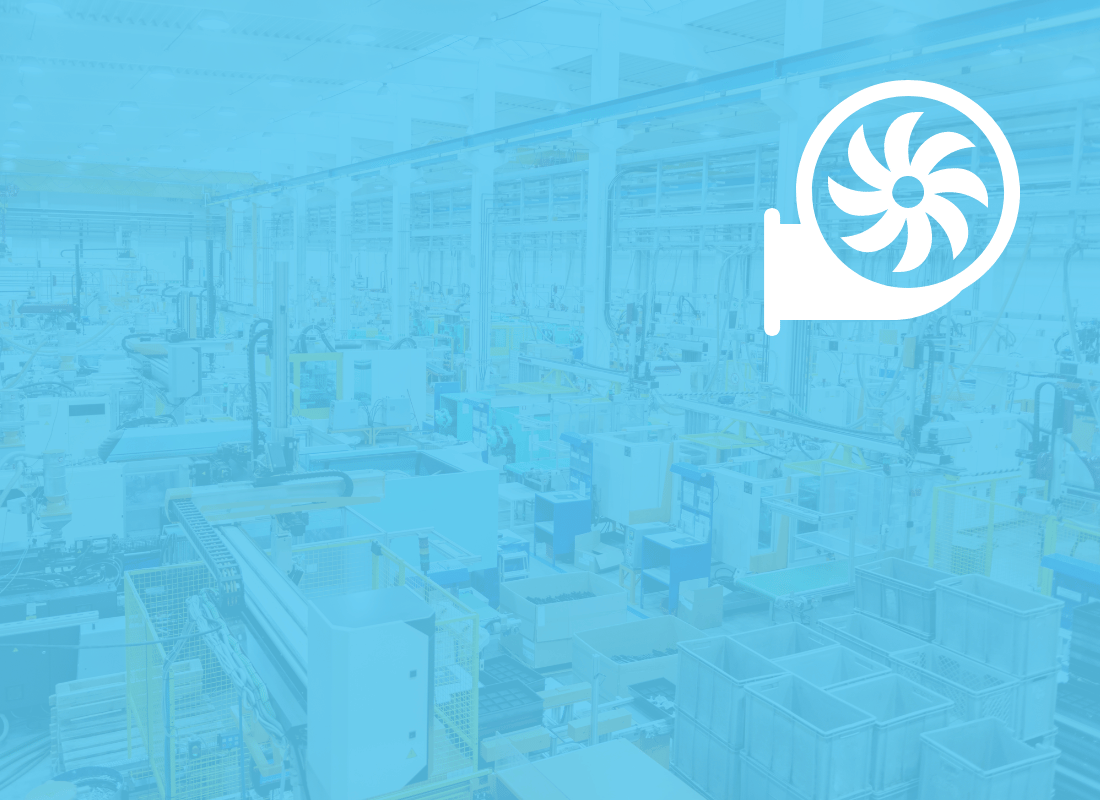Air Blowers: Everything You Need to Know
Air Blowers: Everything You Need to Know

Air Blowers: Everything You Need to Know
Air blowers represent a core component in industrial machinery, as they are one of the primary pumps that create airflow by increasing pressure. Specifically engineered to generate a continuous flow of low-pressure air, air blowers play a pivotal role across a wide range of industrial and commercial settings. From aeration in wastewater treatment facilities to moving large quantities of product from one location to another, these blowers serve as indispensable assets across diverse applications. Air blowers are available in different models, types, sizes, and airflows, allowing flexibility to meet your specific needs and operational requirements. This article provides a comprehensive guide on industrial air blowers and how to select the best one for your application.
What is an Air Blower?
An air blower is extensively used across various industries to create continuous, high-speed airflow. It functions similarly to a fan but operates at higher speeds and can continuously move significant quantities of air from one point to another. An air blower uses either a rotor or a rotating impeller, creating a vacuum that causes air to move into the blower. The speed and volume of the air increase due to the centrifugal force or positive displacement, generating pressure within the blower's housing. Subsequently, the pressurised air is discharged from the housing toward a specific point or location.
What is the Difference Between an Air Blower and a Compressor?
The main difference between a compressor and an air blower is their pressure ratio. Compressors function at higher pressure ratios, compressing air to create a high-pressure airflow. In contrast, air blowers move air at lower pressure ratios, producing continuous or high-speed airflow. Blowers, as they operate at low pressure, are generally more economical as they inherently demand less energy compared to compressors.
Understanding Types of Air Blowers
Understanding the differences between the types of air blowers: rotary lobe, rotary screw, centrifugal, and multistage centrifugal blowers, is crucial for selecting the ideal solution for your specific industry or application.
Types of Air Blowers:
Rotary Lobe Blowers (Roots Blower)
Using two rotors in opposing spins, these blowers generate high air volume at low pressure. While requiring minimal maintenance, they may experience some air leakage, impacting overall energy efficiency. Rotary Lobe Blowers are ideal for applications demanding consistent, low-pressure airflow.
Rotary Screw Blowers
Using male and female rotors for internal air compression, these blowers significantly reduce energy consumption compared to traditional lobe blowers. Notably quieter and more efficient, they are suitable for various industrial applications.
Centrifugal Blowers
These blowers alter airflow direction by increasing air speed and volume through rotating impellers. They excel in applications requiring consistent pressure or base load operations, offering versatility in industrial setups.
Multistage Centrifugal Blowers
These blowers effectively manage small air volumes at elevated pressures and are tailored for high-pressure and high-flow rate needs. Their variable flow and constant-speed power make them ideal for applications requiring precise airflow control.
Selecting an air blower requires understanding of its unique features and capabilities. Each type—be it rotary lobe, rotary screw, centrifugal, or multistage centrifugal—offers different benefits and addresses specific industrial needs.
Choosing the Right Air Blower for Your Needs
Apart from selecting the type of air blower, other factors need to be considered, such as airflow volume, pressure level requirements, available space, budget, energy efficiency rating, and initial and operational costs.
Airflow Volume
Understanding the required air volume for your operation is crucial. Different blowers generate varying quantities of airflow, and selecting one that matches your specific volume needs helps ensure optimal performance.
Pressure Level Requirements
Assess the pressure levels needed for your application. Each blower type operates within different pressure ranges. For instance, centrifugal blowers are apt for constant pressure, while others might suit varying pressure demands.
Available Space
Blowers come in diverse sizes and configurations. Evaluating the space where the blower will be installed is essential. Some blowers might necessitate more space due to their design or installation specifications.
Budget
Financial considerations play a significant role in the selection process. Different types of blowers come with varying initial costs and operational expenses. Understanding your budget constraints helps narrow down options.
Initial and Operational Costs
Beyond the initial investment, it's essential to evaluate the ongoing operational expenses, maintenance costs, and potential downtime. Cheaper initial costs might sometimes translate to higher operating expenses, affecting overall cost-effectiveness.
Energy Efficiency Rating
Assessing a blower's energy efficiency is essential for long-term savings. Most of the air blowers' total cost will be through energy consumption; therefore, choosing an energy-efficient air blower will significantly reduce operational costs over time.
Each blower type has distinct advantages based on its design, efficiency, and intended application. Rotary lobe blowers, for instance, excel in continuous airflow with low pressure, ideal for applications requiring a constant stream of air. On the other hand, rotary screw blowers offer quieter operation and increased energy efficiency, suitable for various industrial settings. Considering all these factors helps identify the air blower that aligns best with your industrial requirements, ensuring efficient performance and cost-effectiveness in the long run.
Air Blowers in Perth and Western Australia: Tailored Solutions for Your Industrial Needs
For personalised assistance in choosing the most suitable air blower for your needs in Perth and Western Australia, Pneumatic Engineering offers guidance in efficient and precise airflow management tailored to your unique application requirements. With a dedicated team ready to understand your industry specifics, we're committed to delivering customised solutions and optimising your operations with the ideal air blower systems. Contact us today with expert guidance on enhancing your industrial airflow in Perth.
